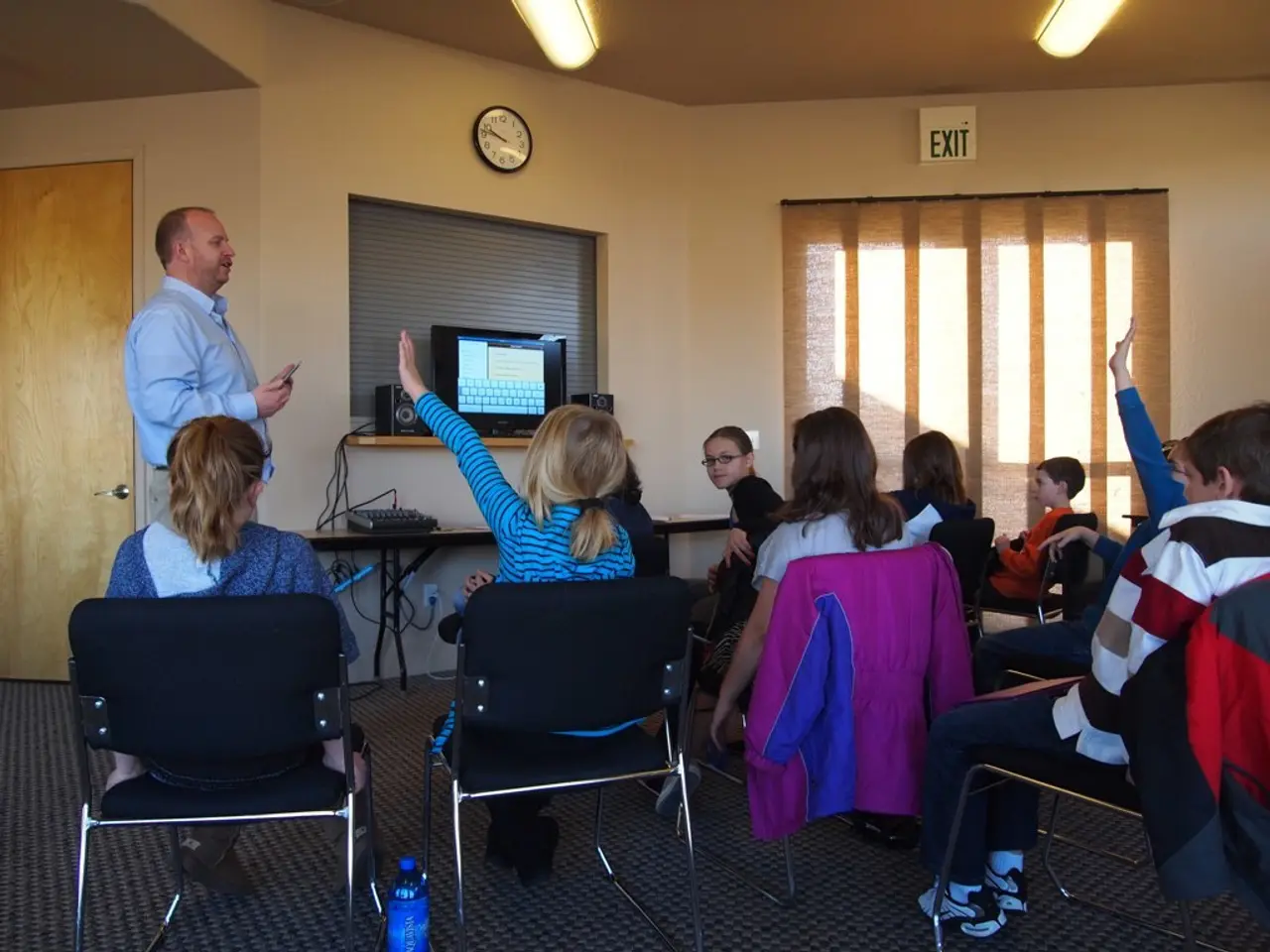NRW's Education Strategy Needs a Detailed Plan from the Regional Government
**Addressing Teacher Shortages: A Multi-Faceted Approach in North Rhine-Westphalia and Beyond**
Governments in North Rhine-Westphalia (NRW) and other German regions are addressing the issue of teacher shortages, particularly in subjects like mathematics, computer science, natural sciences, technology, and school leadership, through a combination of innovative policies, digitalization, and structural support.
The teacher shortage not only impacts daily lessons but also risks exacerbating social inequalities, as schools in disadvantaged areas often bear the brunt of absenteeism and understaffing.
## Targeted Initiatives and Programs
The REGIONALE 2025 program in NRW is funding research projects to make regional labor markets, including education, more resilient to demographic change and digital transformation. For instance, the "MARS" project at the University of Siegen uses network analysis to understand collaboration between institutions and individuals, aiming to develop sustainable structures for future labor market needs, including the education sector.
NRW is also investing in digital teaching solutions, such as the "ALepa.nrw" project at the Fachhochschule Dortmund, which offers practice-oriented, digital teaching and learning formats to train future educators. This modernization of teacher training aims to make it more attractive and accessible, potentially easing entry barriers for those interested in MINT subjects or leadership roles.
Innovative training tools, such as Mimbus (a VR-based training platform), are being used in some German regions to address skill shortages by offering immersive, practical training for teachers and school leaders, particularly in technical and vocational education.
## Systemic Challenges and Focus Areas
Shortages are more acute in STEM/MINT fields due to higher private-sector competition for qualified professionals. Governments are trying to make teaching more attractive through better salaries, career prospects, and by integrating digital tools into classrooms to reduce workload and increase job satisfaction.
The shortage of qualified principals and administrative staff is a growing concern. Solutions include targeted professional development, mentoring programs, and streamlined administrative processes to make leadership roles more appealing and manageable.
Prolonged teacher absences disproportionately affect schools in socially disadvantaged areas, exacerbating educational inequality. Strategies to address this include priority staffing for high-need schools, financial incentives for teachers in challenging environments, and community-based support programs to stabilize schools facing chronic shortages.
## Key Government Measures
| Measure | Focus Area | Goal | Example in NRW | |-------------------------------|-------------------------------|-------------------------------------------|---------------------------| | Research funding | Labor market resilience | Sustainable staffing solutions | MARS project[1] | | Digital teacher training | Modernization, accessibility | Attract and retain new educators | ALepa.nrw[2] | | Innovative training tools | Skill development | Address immediate shortages | VR platforms[3] | | Incentives for MINT teachers | STEM subject staffing | Compete with private sector | Salary adjustments, etc. | | Leadership development | School administration | Fill principal/leader vacancies | Mentoring, training | | Targeted support for disadvantaged schools | Equity | Reduce inequality impact | Priority staffing, incentives |
## Outlook
While these measures represent significant steps, the teacher shortage—especially in MINT and leadership—remains a systemic challenge. Success depends on sustained investment, innovation in training and recruitment, and a focus on equity to ensure that all students, regardless of background, have access to qualified educators. The integration of digital tools and research-driven policy is central to NRW’s approach, but broader cultural and structural reforms will be necessary for long-term solutions.
- The REGIONALE 2025 program in North Rhine-Westphalia (NRW) is investing in research projects aimed at making regional labor markets, including education, more resilient to demographic change and digital transformation, such as the "MARS" project at the University of Siegen that uses network analysis to develop sustainable structures for future labor market needs, including the education sector.
- NRW is also focusing on digital teacher training, like the ALepa.nrw project at the Fachhochschule Dortmund, which offers practice-oriented, digital teaching and learning formats to train future educators, making teacher training more modern, attractive, and accessible.
- Prolonged teacher absences disproportionately affect schools in socially disadvantaged areas, exacerbating educational inequality. To address this issue, NRW is considering priority staffing for high-needs schools, financial incentives for teachers in challenging environments, and community-based support programs, which can stabilize schools facing chronic shortages.




